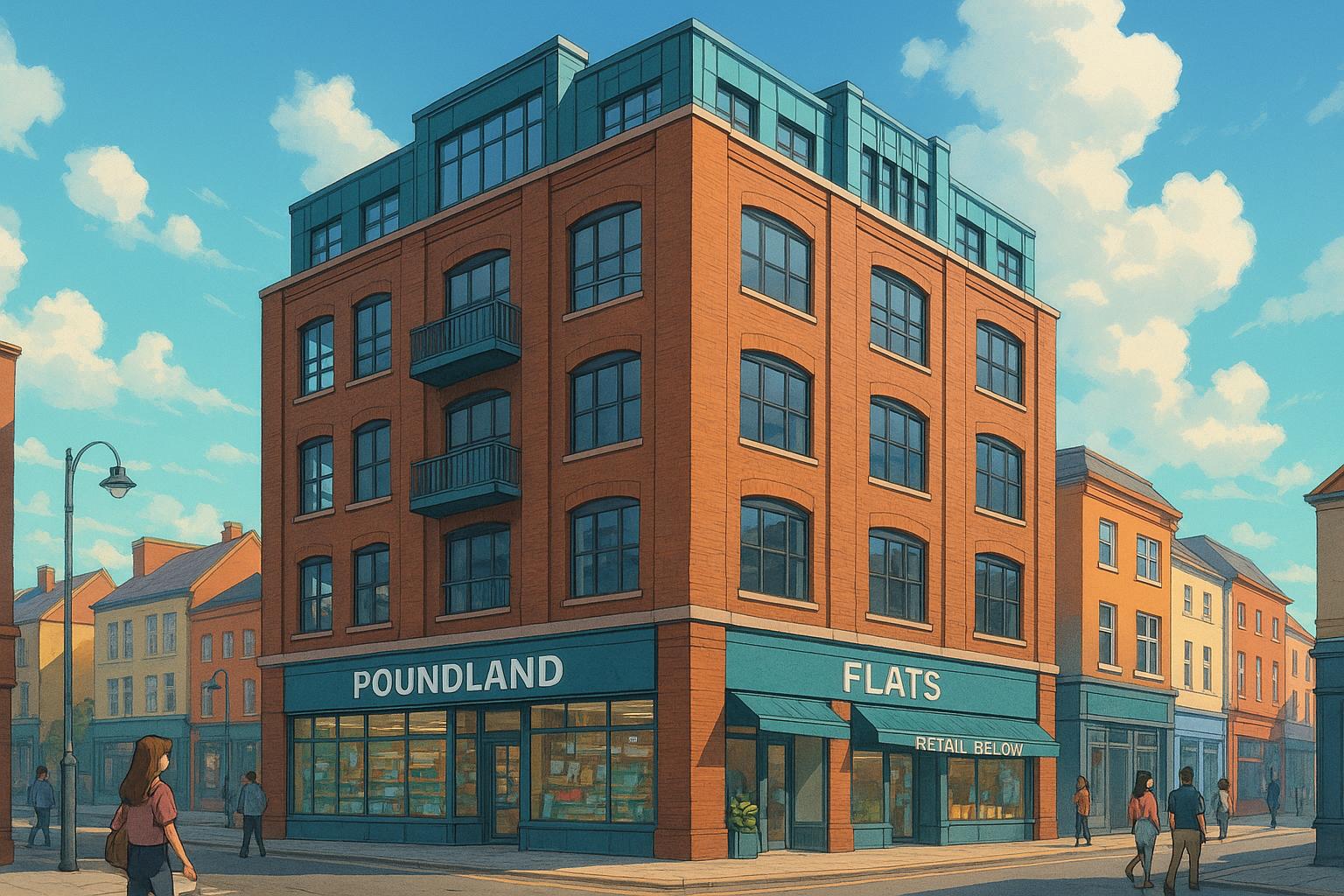The transformation of the former Poundland store in Diss has gained traction following the approval of redevelopment plans by South Norfolk Council. Since the discount retailer vacated the premises in the summer of 2023, the empty shop has become a noticeable blight on the local landscape, described as "sad and run down" by some residents. With these new plans, the building will not only be reconfigured but will also give way to the addition of six new flats and a smaller retail unit, aiming to inject vitality back into the town centre.
This redevelopment is part of a broader trend observed across the country, where former retail spaces, particularly those climaxed by the pandemic's impact on high streets, are being repurposed into residential spaces. In Diss, the proposed designs envision an additional floor atop the existing structure, creating a more attractive urban setting while maintaining the original building's industrial aesthetic. According to local sources, the ambition is to make the area more viable for businesses while also providing much-needed housing.
The reconfiguration raises questions, particularly concerning the adjacent King’s Head Yard car park. This space was initially earmarked for a new JD Wetherspoon pub, with an estimated investment of nearly £3 million for a project that promised a mezzanine level, balcony views of the Mere, and a beer garden. Despite being granted planning permission, the pub development stalled, reflecting a wider uncertainty about the retail and hospitality sectors in the current economic climate.
Beyond Diss, similar strategies are being implemented in various towns. In Market Hill, plans have been submitted to convert a former Barclays bank into five two-bedroom flats while retaining a portion of the ground floor for retail use. The building’s Grade II listing ensures that any development will be mindful of its historical significance, adding yet another layer of complexity to the planning process. Additionally, in Worthing, developers are moving forward with plans to convert floors above Poundland into residential flats, reflecting a remarkable shift in utilising once-exclusive retail spaces for residential purposes.
In further developments, the former Poundland locations in Crewe and Maidenhead are also undergoing transformations. Plans in Crewe aim to split the shop into three separate units and convert storage into residential apartments, while in Maidenhead, construction is underway to create flats alongside remaining commercial space in the former retail outlet. These efforts demonstrate an ongoing pursuit to adapt to changing consumer behaviours and economic realities, empowering local councils to facilitate a landscape that blends retail and residential spaces.
The growing trend of repurposing retail units into flats not only addresses the pressing need for housing but also seeks to revive town centres, making them more attractive to residents and businesses alike. Whether these developments will succeed in reinvigorating local economies remains to be seen, but the proactive steps taken by councils and developers signify a shift towards a more integrated approach to town planning in the face of evolving consumer landscapes.
Reference Map
- Paragraph 1: [1], [3]
- Paragraph 2: [1], [3]
- Paragraph 3: [1], [2]
- Paragraph 4: [4], [7]
- Paragraph 5: [5], [6]
- Paragraph 6: [2], [3], [7]
Source: Noah Wire Services
